QuestionWe adopted our german shepherd when he was 6 weeks old. We were diligent with taking him outdoors to go potty every half hour. We stayed out with him and watched him potty and praised him, but he was still peeing and pooping in the house no matter how often we took him outdoors. He is 4 months old now, and spends most of his in house time in the crate because he keeps that clean. Recently, we put him in a large crate in the tv room so he could be near us and within a half hour, he peed in this crate and started licking it up. Why can he hold it all night long, and then I leash him and walk him around the house to have him pee on the floor right in front of me. I got this dog to be a part of our family, but he cannot be trusted outside of his crate. I feel hopeless about this. I did not want him to be a fenced up dog but he will be if I can't housebreak him.
AnswerI don't understand what is happening, and may not be much help. It sounds like you have done everything right except bringing him home at the edge of too early. If his testicles are descending now, you might neuter him now. That, along with good leadership might help. The key to most behavior problems is approaching things using the dog's natural instincts. Dogs see all the people and dogs in the household as a pack with each having their own rank in the pack and a top dog. Life is much easier if the 2 legged pack members outrank the 4 legged ones. You can learn to play the role of top dog by reading some books or going to a good obedience class. A good obedience class or book is about you being top dog, not about rewarding standard commands with a treat. Start at http://www.dogsbestfriend.com/
Here are some the ways to claim your position as top dog:
''Elevation for small puppies: Sit on the floor and gently put your hands around your pup's middle, below his front legs, and lift him up. He is facing you. Hold him for 15 seconds. Repeat until he no longer struggles. If he is past 10-12 weeks, lift his front feet off the ground, but don't pick him up.
Cradling for small puppies: Hold your puppy gently on his back, as you would cradle a small baby. If he struggles, hold him firmly until he quiets for 10-15 seconds. With larger pups, you can do this as your sit on the floor, with your pup between your legs.
Quiet lying down: Place your pup on the floor on his side, with all 4 legs pointing away from you. Use your hands on his neck/shoulder area and middle, to hold him in this position. When he is quiet, praise him. Lengthen the time that you keep him quietly in this position. When he accepts this position well, handle his paws and muzzle, while keeping him quiet.''
The quotes mean this isn't my original work. It is copied from my Puppy Raising Manual. I have long used these or minor variations of them, and they are very effective. You may want to give him a belly rub while he is on his back too. Helps bonding. There is a big difference between him rolling over and demanding a belly rub, and you choosing a time to roll him over and rub his belly. The latter cements your place as pack leader.

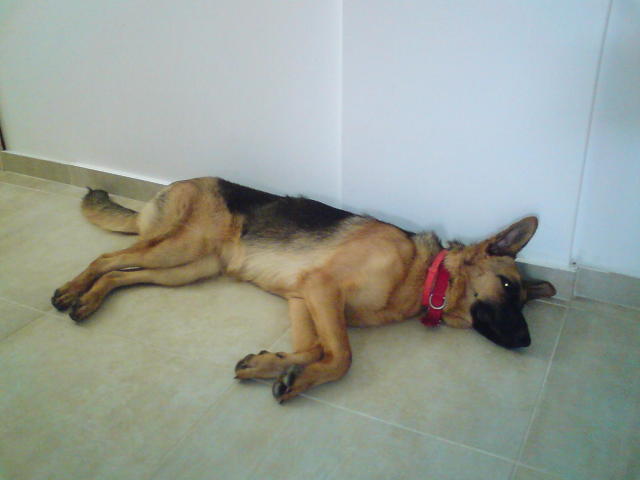 puppy growing thin and tall
Question
Lying down
Hi, I have a 9 month old German She
puppy growing thin and tall
Question
Lying down
Hi, I have a 9 month old German She
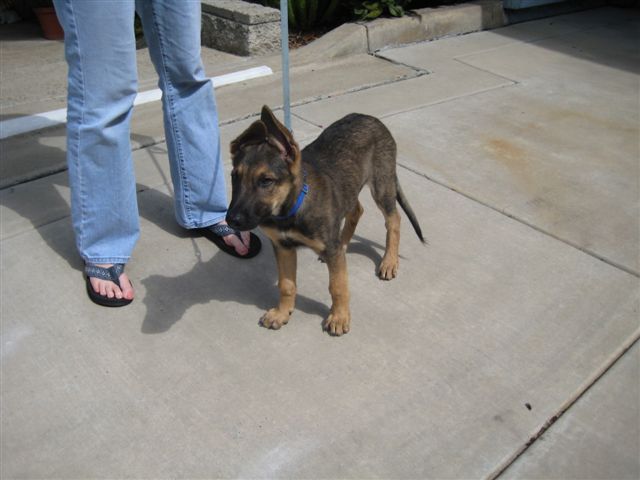 3 month old German Shepherd ears.
QuestionQUESTION: Hello and thank you for you time. I a
3 month old German Shepherd ears.
QuestionQUESTION: Hello and thank you for you time. I a
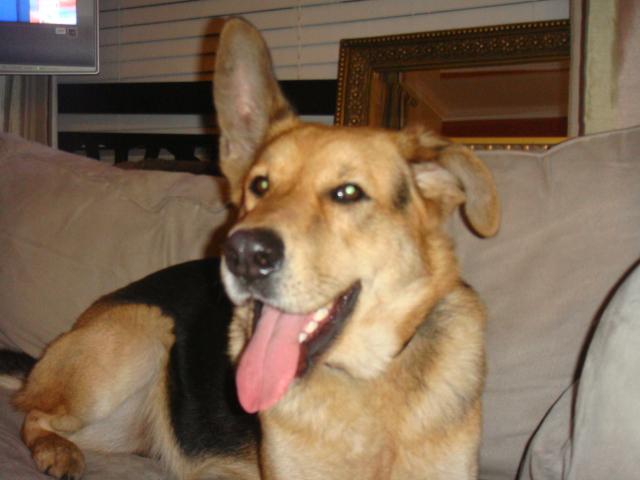 Shepherd ears/teeth
Question
Rosco
We have just taken in a shepherd that we
Shepherd ears/teeth
Question
Rosco
We have just taken in a shepherd that we
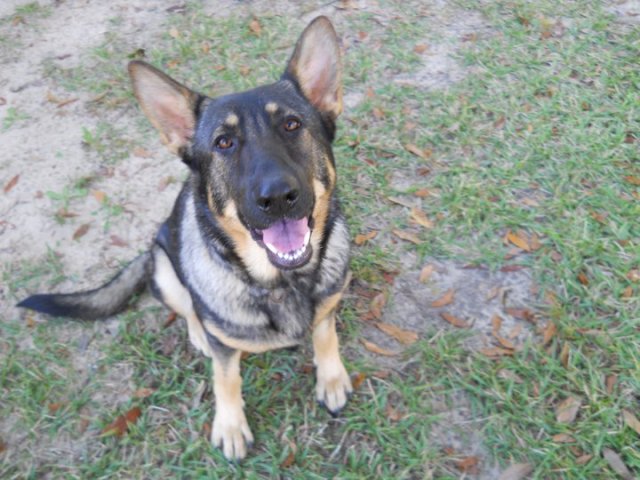 Training rescued German Shepherd
Question
Libby
My boyfriend and I have recently took in
Training rescued German Shepherd
Question
Libby
My boyfriend and I have recently took in
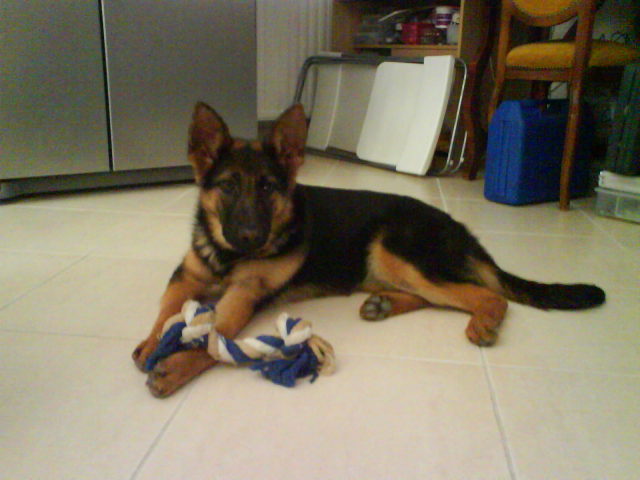 poor growth because bad nutrition
Question
7 month
I bought a female gsd when she was 7 m
poor growth because bad nutrition
Question
7 month
I bought a female gsd when she was 7 m